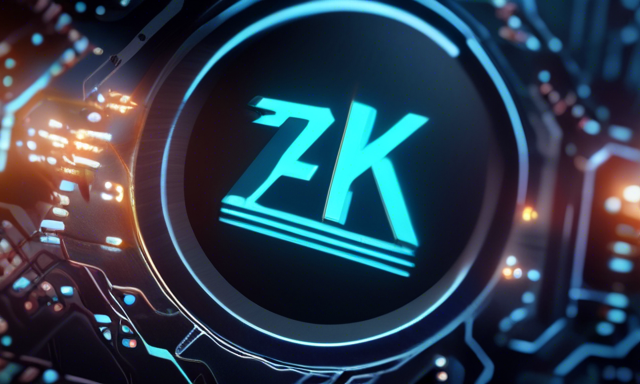ZKX Protocol Closure: What You Need to Know
ZKX Protocol, a derivatives trading platform on Starknet, is shutting down due to lack of user engagement and falling revenues. The closure comes shortly after the protocol raised $7.6 million in funding from various investors, showcasing the volatile nature of the DeFi sector. Here’s a breakdown of the key points surrounding ZKX Protocol’s closure:
- ZKX Protocol, a social derivatives trading platform built on the Ethereum Layer-2 network Starknet, has announced its closure following minimal user engagement and decreasing trading volumes.
- Founder Eduard Jubany Tur cited challenges such as dwindling revenues and broader exhaustion in the DeFi space as reasons for the shutdown.
- ZKX has delisted all markets, closed positions, and returned funds to users’ trading accounts in response to the closure.
- The protocol’s native token, ZKX, has plummeted 96.4% from its all-time high since its launch in June, signaling significant challenges for the project.
The Demise of ZKX Protocol
ZKX Protocol, a decentralized derivatives trading platform operating on Starknet, recently announced its closure following dwindling user engagement and declining revenues. This decision was made just weeks after the project secured substantial funding, shedding light on the unpredictable nature of the DeFi sector.
Founder Eduard Jubany Tur disclosed the closure on July 31, 2024, attributing the decision to the protocol’s inability to find a sustainable path forward. The closure came as a surprise to many stakeholders, given that ZKX had raised $7.6 million in a recent funding round.
Important Statement 30.07.24
With much regret, we have to announce the discontinuation of the ZKX protocol. Despite our best efforts, we have been unable to find an economically viable path for the protocol.
(1) All markets have been delisted, positions have been closed, and all…
— Eduard (@0xEduard) July 30, 2024
Challenges Faced by ZKX
The ZKX protocol, designed to offer a scalable decentralized exchange for perpetual trading, encountered various hurdles that led to its closure. Tur highlighted the following challenges:
- Minimal user engagement: Only a small number of individuals participated in the rewards program, indicating a lack of interest in the platform.
- Decreasing trading volumes: Daily revenues were insufficient to cover server expenses, showcasing a significant decline in trading activity.
To address these issues, ZKX took immediate action by delisting all markets, closing positions, and reimbursing users’ funds. Users have until the end of August to transfer their funds to the protocol’s self-custodial account on Starknet.
ZKX Token’s Value Plummets
Following its launch in June 2024, the ZKX token experienced a sharp decline in value. CoinGecko data revealed that the token dropped by 37.8% in the 24 hours post-announcement of the shutdown. Moreover, it has lost a staggering 96.4% of its value since hitting an all-time high a day after launch.
Tur acknowledged that the token generation event (TGE) failed to meet expectations, contributing to the project’s current situation. As major token holders cashed out, the token’s value continued to decline, making it unsustainable to support the protocol.
Broader Challenges in the DeFi Sector
The closure of ZKX reflects broader challenges within the DeFi industry. Tur pointed to a sense of fatigue in the market, where the efforts and infrastructure established by blockchain projects like ZKX are undervalued. This indicates a pressing need for sustainable business models in the DeFi space.
Despite receiving support from prominent investors such as StarkWare, Amber Group, Huobi, and Crypto.com, ZKX faced insurmountable obstacles that ultimately led to its closure. Individual investors, including Sandeep Nailwal and Ashwin Ramachandran, also backed the project.
As the protocol winds down operations, users are encouraged to withdraw their funds through the Starkway Bridge, with vesting and distribution continuing post-September 1, 2024.
Hot Take: Lessons Learned from ZKX’s Closure
The demise of ZKX Protocol serves as a cautionary tale for DeFi projects, highlighting the challenges of sustaining user engagement and generating revenue in a competitive market. As the industry evolves, it’s crucial for projects to adapt to changing dynamics and create robust business models to ensure long-term viability.





 By
By

 By
By
 By
By
 By
By